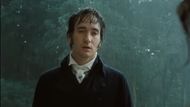Movie boyfriends have always sold us a very specific kind of romance: brooding stares, dramatic rain-soaked declarations, and classic storylines. We grow up rooting for these love stories, quoting the lines, and thinking, yes, this is what passion looks like. But if you take the popcorn goggles off for a second, a lot of these iconic movie boyfriends? Total walking red flags.
The truth is, some of our most beloved movie boyfriends are, well… alarming. So, before you catch yourself saying “where’s my movie boyfriend,” maybe double-check the fine print. These 10 movie boyfriends may have won over the audience, but in real life, they’d be the most alarming red flags. Let’s unpack the drama.
Christian Grey- Fifty Shades Franchise

Christian Grey was marketed as the ultimate movie boyfriend: rich, powerful, and mysterious. But peel back the silk ties and mood lighting, and what you get is a man who stalks, manipulates, and tries to control every aspect of Ana’s life under the guise of protection and love. He tracks her phone, shows up uninvited, buys the company she works at just to assert power, and disguises possessiveness as passion.
While the franchise tries hard to dress up his behavior in trauma and certain dynamics, there’s a clear lack of healthy boundaries and informed consent in their relationship. Rather than an ideal partner, Christian, as a movie boyfriend, exemplifies how dangerous behaviors can be misrepresented as romantic in the popular media.
Nate- The Devil Wears Prada

At first glance, Nate seems like the sweet, supportive movie boyfriend, charming, grounded, and conveniently there with a grilled cheese sandwich. But dig a little deeper, and he’s less of a victim and more of a walking guilt trip. Rather than supporting Andy’s career growth, Nate sulks when she starts succeeding, treats her ambition as a betrayal, and constantly undermines her progress. He wants her to change, but only on his terms.
Instead of recognizing that Andy is simply evolving in a high-pressure job, he plays the martyr, making her feel like she’s the one who’s drifted. In reality, Nate couldn’t handle not being the center of her world. And when she finally walks away from the toxic job? Somehow, he still gets a redemption arc. Classic
Edward Cullen- Twilight

Edward Cullen was every teen’s dream movie boyfriend in the late 2000s: brooding, beautiful, and fiercely devoted. But let’s not romanticize what was essentially textbook controlling behavior. He watches Bella sleep without her consent, isolates her from her friends, constantly makes decisions for her, and justifies it all with “love.” His obsession is framed as protection, but it comes off more like possessiveness.
What’s worse, the power imbalance is staggering; he’s a century-old vampire, and she’s a high school student. Bella’s loss of agency is presented as devotion, and Edward’s unhealthy attachment is masked by glitter and longing stares. In any other context, this wouldn't be a love story. It would be a cautionary tale.
Noah Calhoun- The Notebook

Noah Calhoun is often hailed as one of the finest movie boyfriends. He writes 365 letters, restores a house, and never stops loving Allie, sounds dreamy, right? But scratch the surface, and the romance starts to feel a lot more manipulative. He threatens self-harm to get a date, ignores boundaries, and uses grand gestures to win her back rather than genuine communication or growth.
His love is passionate, yes, but also possessive and emotionally intense in a way that leaves no room for Allie’s autonomy. The story frames obsession as romance and conflict as chemistry. In real life, a partner who pressures, controls, or disregards your choices, no matter how charming, is a red flag, not a soulmate.
Tom Hansen- 500 Days of Summer

Tom Hansen has long been claimed as the lovelorn romantic victim of love, but the truth is more nuanced. He idealizes all his fantasies about Summer without ever really getting to know her. She makes it clear from the beginning that she's not interested in anything serious, but Tom won't listen, instead choosing to romanticize and become obsessed with a woman who never actually existed.
His anguish is authentic, but it's based on entitlement and unrealistic expectations rather than genuine betrayal. Tom does not love Summer; he loves the concept of her. The movie masterfully deconstructs the "nice guy" trope and shows how emotional immaturity and boundary disrespect are just as destructive as overt toxicity. Tom isn't evil, nor is he a hero, just a reminder that idealizing someone is not the same as loving them.
Mark- Love Actually

Mark is often remembered for one of the film’s most iconic moments, showing up at Juliet’s doorstep with handwritten cue cards declaring his love. Romantic? Maybe, until you remember she’s married to his best friend. Instead of moving on or having an honest conversation, Mark pines silently, treats Juliet coldly, and then makes a grand, guilt-laced gesture that puts her in an impossibly awkward position.
Joel Barrish- Eternal Sunshine of the Spotless Mind

Joel Barrish is often seen as the quiet, sensitive soul who just wants to be loved, the antidote to louder, more toxic movie boyfriends. But beneath his melancholy charm lies a pattern of emotional avoidance, projection, and unrealistic romantic expectations. He idealizes Clementine as his savior, expecting her to fix his loneliness without truly engaging with her as a flawed, complex individual.
He’s not malicious, but he is emotionally unavailable and passive to a fault. Joel isn't the worst boyfriend on this list, but he's still a cautionary tale. Love doesn’t work when one person disappears into their own head and expects the other to do all the emotional heavy lifting.
Mr Rochester- Jane Eyre

Typically portrayed as the tortured, brooding hero, Mr. Rochester's behavior in Jane Eyre is anything but virtuous. He lies to Jane about being married, keeping his mentally unstable wife secluded in the attic, and trying to marry Jane. Instead of being truthful, he plays games of trust with Jane and probes her loyalty through games of cat and mouse and withholding affection.
His relationship with Jane is depicted as that of two equals, but he repeatedly yields power over her, socially, economically, and psychologically. The gothic mood and Rochester's vulnerability may make him look less despicable, but they do not justify his lying or controlling behavior. Jane ultimately decides to go back under her own conditions, which makes the story more complex, but does not invalidate his previous actions.
Mr Darcy- Pride and Prejudice

Mr. Darcy has long stood as the best classic movie boyfriend. Tall, mysterious, emotionally repressed, and rich. But while Austen’s novel allows for his redemption, many film adaptations gloss over just how arrogant, classist, and emotionally condescending he is for much of the story. His first proposal to Elizabeth isn’t romantic; it’s self-important and insulting, as he reminds her of the social gap between them even while asking for her hand. He is classist, narcissistic, and even tries to get between Jane and Charles Bingley.
When adapted for the screen, Darcy is frequently stripped of his flaws and turned into a brooding fantasy. In truth, he’s a man who had to unlearn his entitlement, and that’s the part of the story worth admiring.
So, the next time you find yourself sighing over a movie boyfriend and whispering “goals,” take a moment to look past the slow-motion kisses and grand declarations. Many of these cinematic heartthrobs are packaged in fantasy but built on behavior that’s toxic, controlling, or downright manipulative in real life. Romance isn’t about dramatic gestures or brooding silence—it’s about mutual respect, emotional maturity, and healthy communication. Because the best kind of movie boyfriend? The one who wouldn’t raise red flags if he walked into your real-world love story.
Love movies? Try our Box Office Game and Movie Grid Game to test your film knowledge and have some fun!
